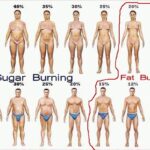
Cardio vs. Weight Training
For years now, the average person has been trying to figure out which form of exercise is best for my health, cardiovascular training or weight training? Is there even one that is better? Do I do them on the same day? Which helps with weight loss? Do athletes benefit from both? These are a few questions I have heard the last 20 years in the fitness industry. I compiled a list below of who can benefit from which form the most and why.
- Weight loss- I picked this as number 1 due to the fact that a large majority of the population is overweight. If you are trying to lose weight I recommend about 75% of your overall exercise time is best spent doing cardiovascular exercise.the remaining 25% should be weight training. I know everyone responds differently with exercise, but cardiovascular exercise is catabolic meaning that it breaks down into smaller parts. For those looking to lose weight, being smaller is the goal here so go with cardiovascular exercise being the more important “for now,” and weight training being secondary. You have to shed before you can sculpt.
- Maintain current body fat- This is where the percentage of overall exercise time will shift into more of a weight training emphasis. For those looking to maintain their current body fat, I recommend 60% of their exercise time is best spent weight training, while the remaining 40% best spent doing cardiovascular exercise. Nothing can change the shape of your body composition more than weight training. Cardiovascular exercise is still important to do, but you don’t need to “shed” as much body fat as maybe you once did.
- Fighting Most Diseases- This category goes to cardiovascular exercise, with the exception of our number 5 on this list. The benefits of cardiovascular exercise are decreased risk of diabetes, decreased chance of heart disease, lowers cholesterol, lowers blood pressure, decreases chance of stroke, improves sleep, increases libido, increases metabolism, and also decreases risk for depression. Weight training does almost if not all of this, but to a lesser degree.
- Order of exercise- This topic is a big one for people that do some form of cardiovascular exercise and weight training. If your focus is on general health and not sport specific than you should do cardiovascular exercise first, weight training second. The reason comes down to hormones. Weight training will increase growth hormone and testosterone levels substantially more than cardiovascular exercise. Also, weight training requires more explosive movements and it is easier to get hurt so doing something cardiovascular first allows your body to get a sufficient warm-up!
- Osteoporosis prevention- 90% weight training will win this discussion. Yes, the impact of running can provide an increase in bone density but not everyone is a runner or even wants to or should. Weight training on the other hand will provide a huge benefit in bone density to offset osteopenia and osteoporosis.
- Injury prevention- Weight training gets the victory in this debate. Too much of the same cardiovascular exercise (which most of us are guilty of doing) will increase risk of getting hurt due to too much strain on ligaments, tendons, and muscle tissue. It does not matter if it’s a current sport you play, or old injuries from earlier in life, weight training will help prevent injury with a 100% success rate if done correctly. Try and focus on 1 arm and 1 leg movements if at all possible to balance out each side evenly.
- Anti-aging- This is a close call, but on a cellular level most studies show more of a correlation with telomere length and cardiovascular exercise than weight training. Telomere length decreases with age, but consistent vigorous exercise has shown several times over in numerous studies that it can keep some telomeres from shortening. The key with this is finding a sweet spot with cardiovascular exercise because too much (over-training) can cause too much inflammation and perhaps even accelerate the aging process. Chronic poor health like diabetes, insomnia, stress, and smoking can all accelerate the aging process as well.
- Better appetite control- I give the nod to weight training on this topic. Strength training does burn calories, but not as much as cardiovascular exercise given the same duration of exercise time. I know you are thinking that is a good thing! But, unfortunately a lot of people tend to have the attitude of “I just burnt a ton of calories and can eat whatever I want.” There are times this is a good thing, but appetite control is a major problem for most of us, and this pattern can lead to a bad habit. After weight training you won’t have that ravenous appetite like cardiovascular exercise so weight training wins this debate.
So who is the winner? It is a tie and for good reason. The best exercise plan will combine weight training and cardiovascular exercise. The goal is to provide your body (and mind) with different ways to exercise to keep adding health benefits and to make it fun. Your cardiovascular exercise options can be anything from swimming, cycling, walking,etc, and the key is to vary the intensity from easy longer durations sessions to very short sprints when your body is ready. For weight training it is best to focus on compound exercises that focus on more than one muscle group and keep the reps in the 5-12 range. There is no need to do super high reps to try and “get your heart rate sustained,” leave that for your cardiovascular exercises. You can alternate days with cardio and weight training, or you can do them on the same day as long as you get sufficient recovery from them and don’t get hurt!


